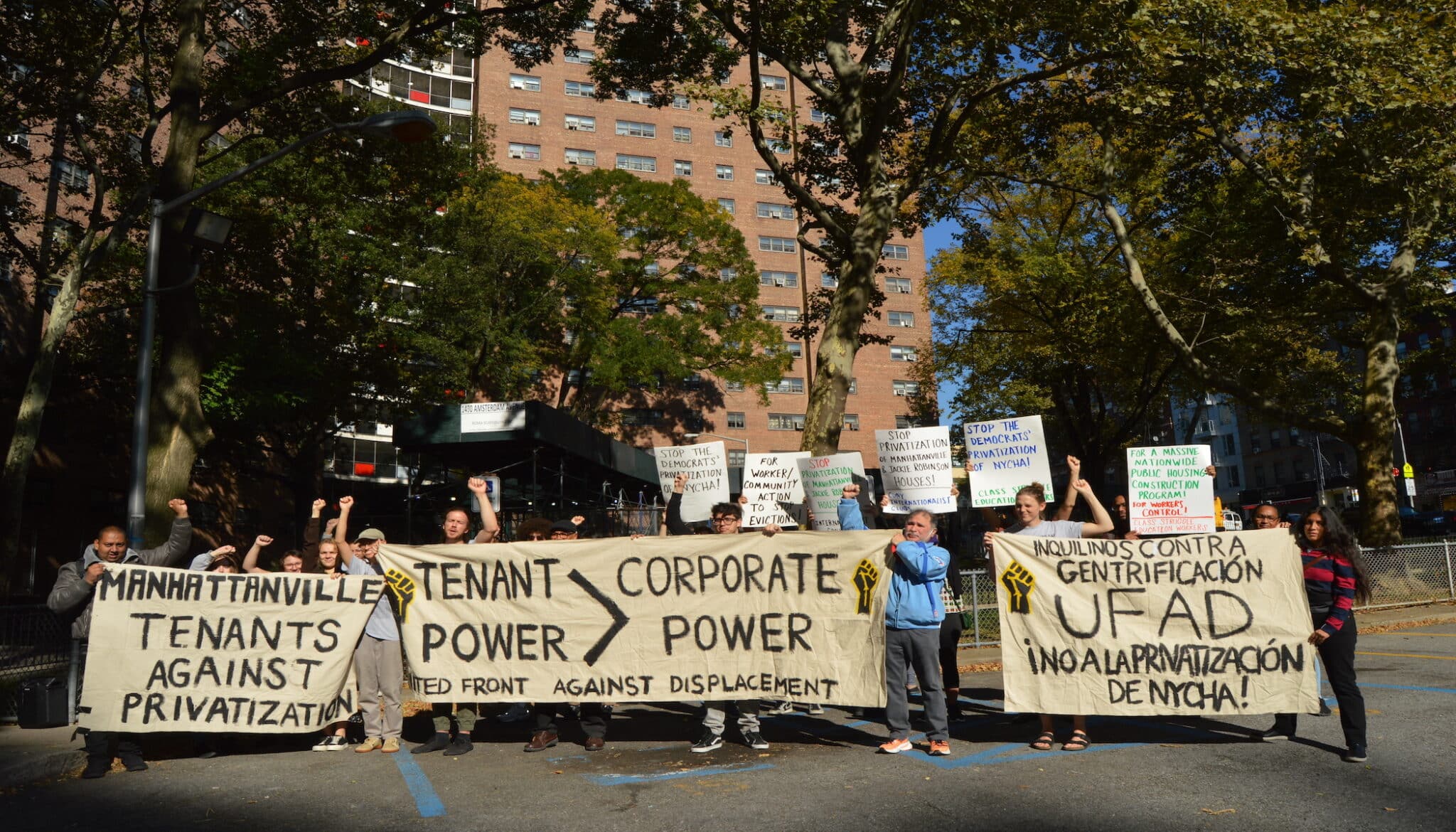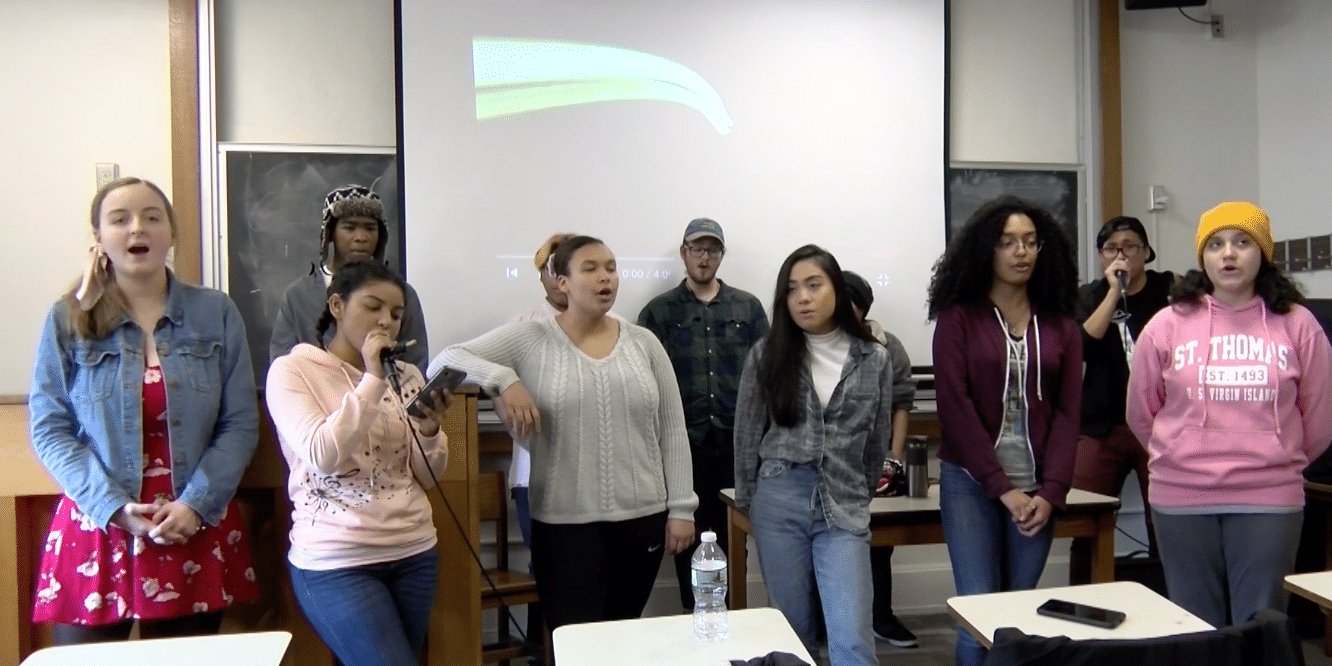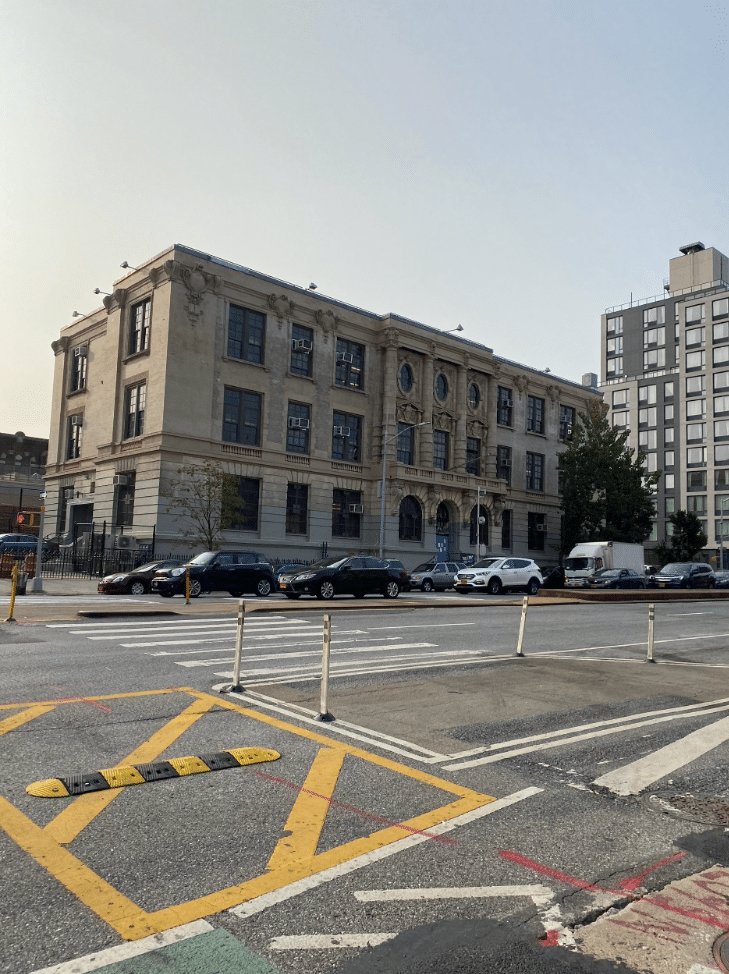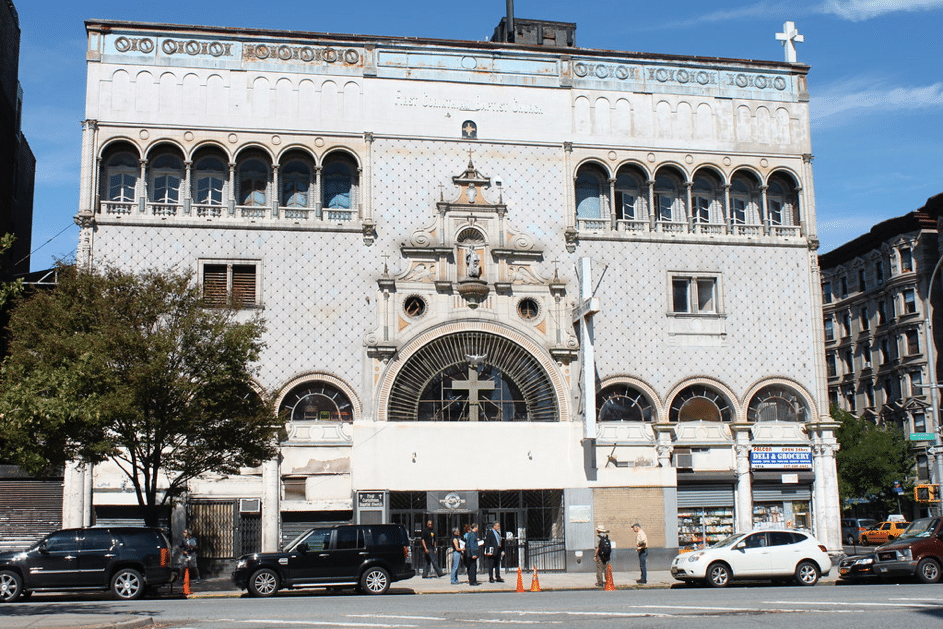Residents of Manhattanville Houses enjoy a sweeping view of the New York City skyline from the communal patio on the top floor of every building. Some apartments also offer priceless city views. “From my apartment, you can see all the way to the Empire State Building. It’s nice during the day, but it’s very beautiful at night,” Loretta R. Thomas, a tenant, said. The six apartment buildings in the complex rise 20 stories, and Thomas describes the view as her unit’s biggest charm. “My apartment, if they were to renovate it and sell it, would be worth millions.”
That is exactly what tenants at Manhattanville worry the city will do. They fear they are on the brink of losing their affordable apartments because the New York City Housing Authority (NYCHA) is in the process of leasing this public housing development to a private landlord.
“Manhattanville is prime real estate, and it’s easy to convert because it has only six buildings,” said Brittnee Lucas, whose mother lives in the complex. “Of course developers want it.”
NYCHA plans to convert the development under the Section 8 Permanent Affordability Commitment Together (PACT) program that provides unit-bound rent vouchers to private landlords. They say this conversion will raise part of the $40 billion needed for repairs across all NYCHA developments. But some of the residents feel that NYCHA is intentionally neglecting the buildings to help rally support for their privatization scheme. “They want the conditions to be so bad that tenants feel like PACT is their only hope,” Paul Ortiz, a Manhattanville Houses tenant, explained.
Manhattanville Houses tenants have long complained that NYCHA ignores service orders and allows the residents to live in unclean and unsafe conditions. At a meeting organized by The United Front Against Displacement (UFAD), an anti-gentrification advocacy group, tenants talked about the problems in their apartments. A Spanish-speaking tenant said that NYCHA hasn’t responded to a work order he submitted months ago.
“Neighbors don’t wait for anyone from NYCHA to come. They hire their own plumbers. They hire their own electricians, [and] their own carpenters,” Ortiz described. “It gets worse and worse every year.”
On the top floor hallway in building 1430, we noticed a window without glass. Matthew, a tenant who only gave us his first name, said that it has been missing for “too long.”
Dorothy Sumpter, another Manhattanville Houses tenant, says that she is making plans to move out of New York City because she is tired of the building management’s neglect and cannot afford to move out of public housing.
But other tenants want to stay and fear what may happen if a private landlord takes over. The UFAD sent a petition to elected politicians and city leaders on August 16 to oppose what they describe as “the privatization of NYCHA.” The petition was signed by 218 tenants of the Manhattanville Houses, 74 tenants of the Jackie Robinson Houses, and 81 members of the community. No elected official responded.
Members of the UFAD attempted to follow up with city officials at the African American Day Parade on September 18. “They practically ran and literally danced away from us,” said Chantelle, a member of the UFAD. Tenants of Manhattanville Houses say that the silence following the petition reflects a larger problem.
“Mayor [Eric] Adams, [NYCHA chair Gregory] Russ, the city council, they all know that PACT threatens low-income renters” Alice, a member of the UFAD, commented. “They won’t respond because they don’t care about the tenants. They want to suck every dollar they can out of these developments.”
And PACT promises profits for the private landlords that come in. Though NYCHA rent is capped at 30 percent of a tenant’s gross income, many current tenants pay significantly less. According to NYCHA’s website, every tenant paying less than 30 percent will have their rents increased after PACT conversion. Private landlords may also charge for utilities, an expense that is currently included in the rent at NYCHA developments.
Some residents say that a rent increase of any kind will be difficult to manage. “A lot of the residents are living paycheck to paycheck,” Sumpter said. “We can’t afford to pay any more than we are.”
But rent is not the tenants’ only concern. According to a report by Human Rights Watch, the city’s five-year-old plan may cause evictions. “Just look at what happened at Bayside,” Ortiz said. Ocean Bay (Bayside) Houses in Queens was the first development to be converted from public housing to PACT Section 8 housing. Human Rights Watch highlighted Ocean Bay in its report, stating that the eviction rates at Bayside Houses were significantly higher than the NYCHA average following the PACT conversion. NYCHA said that the evictions had nothing to do with the PACT conversion.
But tenants are also worried about long-term displacement as plans for a luxury building have already been submitted to the city.
Grid Group, a real estate development company, submitted plans at the end of 2021 to develop land on the edge of Manhattanville for a 26-story luxury building. NYCHA officials say that the plans are being considered but have not been finalized. “Of course it’s going to be beautiful, but it’s not going to be for us,” Ortiz said. “[If it is built] it’s going to be for the upper-middle class, for the people who can afford it.”
“It is going to raise the real estate value of everything else,” Thomas added. “The more that happens, [the more] it increases the value of the property, and they are going to want us out.”
And tenants at Manhattanville feel that they are already being excluded from the future of the development. “The parking lots have been sold. They don’t belong to NYCHA anymore,” Ortiz said. “Even if you live in the complex, they will charge you $400 per month. It’s a ridiculous price.”
NYCHA published this year that “The average public housing family’s monthly rent is $542,” making the cost of parking a car on the premises almost as expensive as renting an apartment in the building.
But the tenants have not given up. “This is our home, we are not going to be driven out of it,” Thomas says. They plan to continue organizing with the UFAD to put pressure on politicians and city officials.
On Saturday, October 22, Manhattanville tenants and members of the UFAD gathered in a recently sold parking lot on the premises to protest the imminent PACT conversion. “We are here, and we will continue to be here,” Ryan, a member of the UFAD, said into a microphone. And the group of tenants, students, and members of the community that stood listening to him all nodded their heads in agreement.
“The privatization of NYCHA impacts you or someone you know, even if you can’t see it,” Matthew explained. “Everyone should care about what is happening here.”
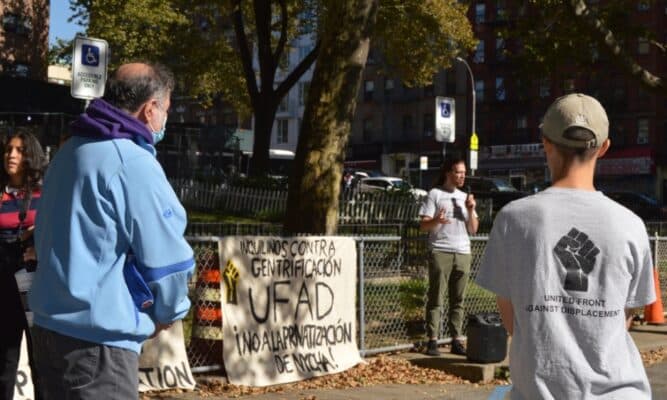
Tags: Affordable Housing CCNY CCNY student journalism Displacement eviction Gentrification Grid Group Housing Manhattanville Houses Mayor Eric Adams NYCHA Parking Public Housing Real Estate The City College of New York The United Front Against Displacement (UFAD) UFAD Unaffordable Parking
